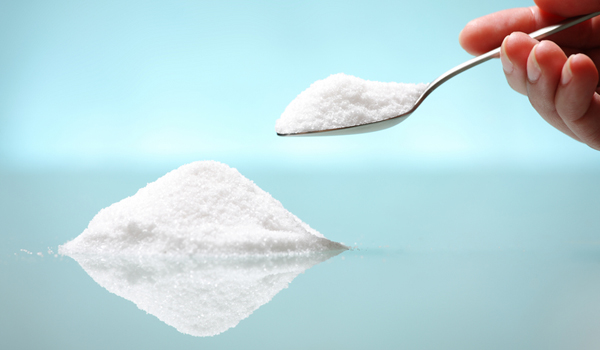
Salt a Leading Killer Worldwide, Scientists Say

RIO DE JANEIRO — Want to save a few million premature deaths each year? Regulate salt, said researchers at the World Nutrition Rio2012 meeting held here last week.
"Salt [added to food] is the major cause of high blood pressure, and high blood pressure is the major cause of death worldwide," said Graham MacGregor, professor of cardiovascular medicine at Queen Mary, University of London. "The evidence for salt [in causing premature death] is overwhelming, equivalent to the onus of smoking."
Salt, or sodium chloride, is essential for human health; we need about 350 milligrams of sodium daily, according to the Centers for Disease Control and Prevention (CDC). That's about the weight of half a raisin. Unfortunately, Americans consume on average about 3,500 milligrams of sodium daily.
Most of that sodium comes not from the saltshaker but rather from processed foods, in amounts unrealized by most consumers. A bag of potato chips might be an obvious culprit; one serving contains more than 250 milligrams of sodium. But so does a single slice of store-bought bread or a bowl of breakfast cereal. The bigger offenders are canned vegetables, canned soups and frozen dinners, each with around 1,000 milligrams of sodium.
Worse yet is just about any meal eaten out; fast foods in particular can contain over 2,000 milligrams of sodium in each meal.
Reducing daily sodium intake by 2,000 milligrams at the population level could prevent 1.25 million deaths from stroke and almost 3 million deaths from cardiovascular disease each year, according to an analysis published in the British Medical Journal in 2009. A 1,200-milligram reduction could save up to $24 billion annually in U.S. health costs, according to a study published in the New England Journal of Medicine in 2010. [10 Leading Causes of Death]
But the consumer can only be so educated, said MacGregor and other experts at a special session on sodium. They recommend that the food industry step up efforts to gradually reduce salt in the food supply, either through voluntary agreements or government regulation.
Get the world’s most fascinating discoveries delivered straight to your inbox.
MacGregor himself is leery of voluntary arrangements, because there is little industry incentive. "Salt makes cheap, lousy food taste better," he said. Also, salt is a main driver of thirst, bolstering sales for the beverage industry; and it increases water-binding in meats, allowing the industry to sell heavier meat products with less real meat at a lower price.
Nevertheless, MacGregor has been involved in efforts in the U.K. to have industry voluntarily lower sodium content "with the threat of legislation," he said, which has led to a 10 percent reduction in the last three years, saving millions of dollars in health costs there.
A gradual decline is needed, MacGregor said, because people have grown accustomed to salt. Salt taste buds become less sensitive with chronic exposure. But a slow weaning of salt would go unnoticed by the public, he said. [7 (Other) Flavors Humans May Taste]
Mary L'Abbé of the University of Toronto, who also presented, warned of adverse ramifications. For example, low-sodium breakfast cereals can have 25 percent more calories, 20 percent more sugar, and 70 percent more fat, she said. In lieu of higher-quality ingredients, industry has to make food taste good in some way, she said.
Branka Legetic of the Pan American Health Organization, another presenter, warned that efforts to reduce sodium must not interfere with the immensely effective iodized salt campaigns. Salt fortified with iodine has nearly eliminated iodine deficiency and associated diseases such as goiter, which was epidemic in the United States as recent as 100 years ago. Legetic is a proponent of salt reduction, however, and she leads efforts by PAHO and the World Health Organization to reduce salt intake by 15 percent by 2020.
Even modest salt reductions can make great gains in public health, L'Abbé said. This is because most people are only at elevated risk of high blood pressure; and they are at the stage where a lower-salt diet can moderate that risk, she said. A smaller percentage of people already have very high blood pressure, and many of them now must rely on expensive medication to stay alive.
Most countries have educational campaigns to raise awareness of excess salt, Legetic said, and there has been some success in reducing the amount of salt used at home.
But this is but a drop in the bucket, said MacGregor.
That people have control of salt intake "is a lot of rubbish," MacGregor said, emphasizing the need for government regulation. "How can you expect people to lower their intake when they don't know where it is?"
Christopher Wanjek is the author of the books "Bad Medicine" and "Food At Work." His column, Bad Medicine, appears regularly on LiveScience.

Christopher Wanjek is a Live Science contributor and a health and science writer. He is the author of three science books: Spacefarers (2020), Food at Work (2005) and Bad Medicine (2003). His "Food at Work" book and project, concerning workers' health, safety and productivity, was commissioned by the U.N.'s International Labor Organization. For Live Science, Christopher covers public health, nutrition and biology, and he has written extensively for The Washington Post and Sky & Telescope among others, as well as for the NASA Goddard Space Flight Center, where he was a senior writer. Christopher holds a Master of Health degree from Harvard School of Public Health and a degree in journalism from Temple University.
 Live Science Plus
Live Science Plus





